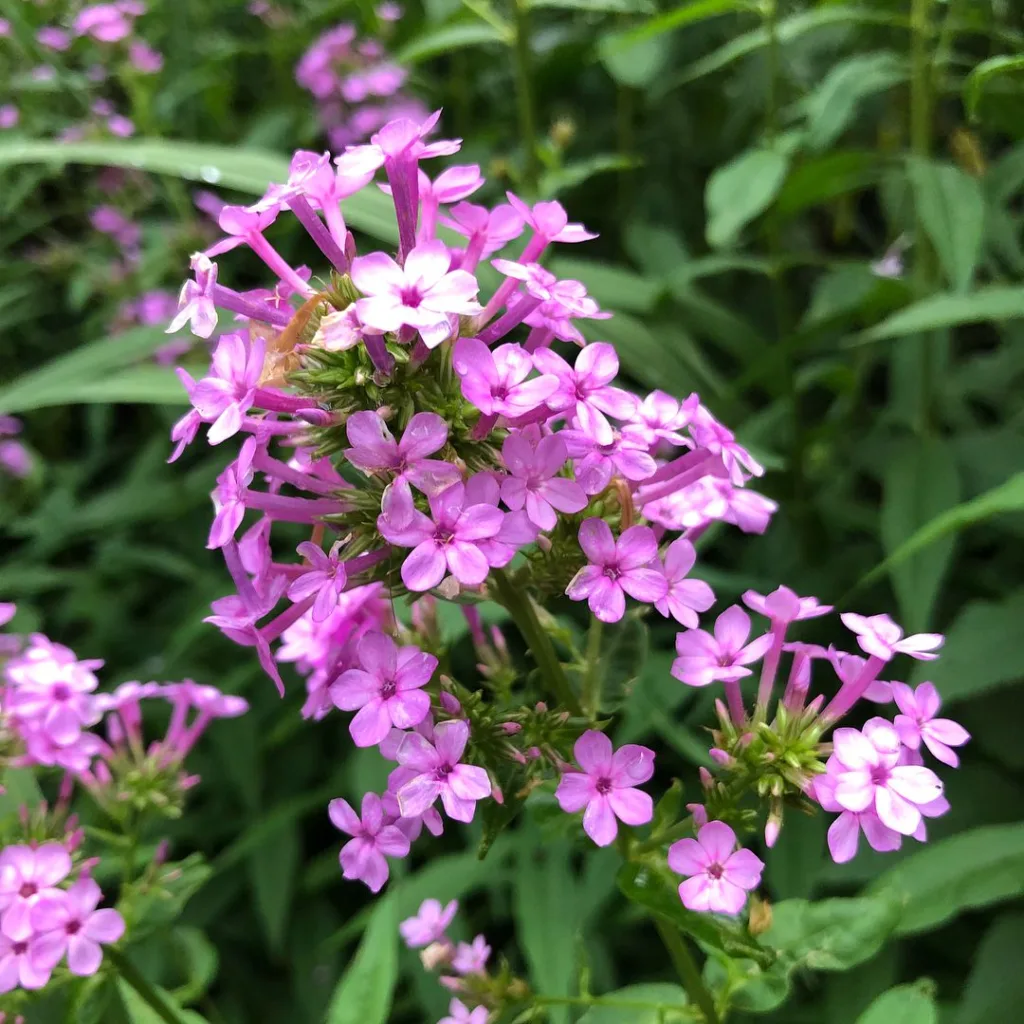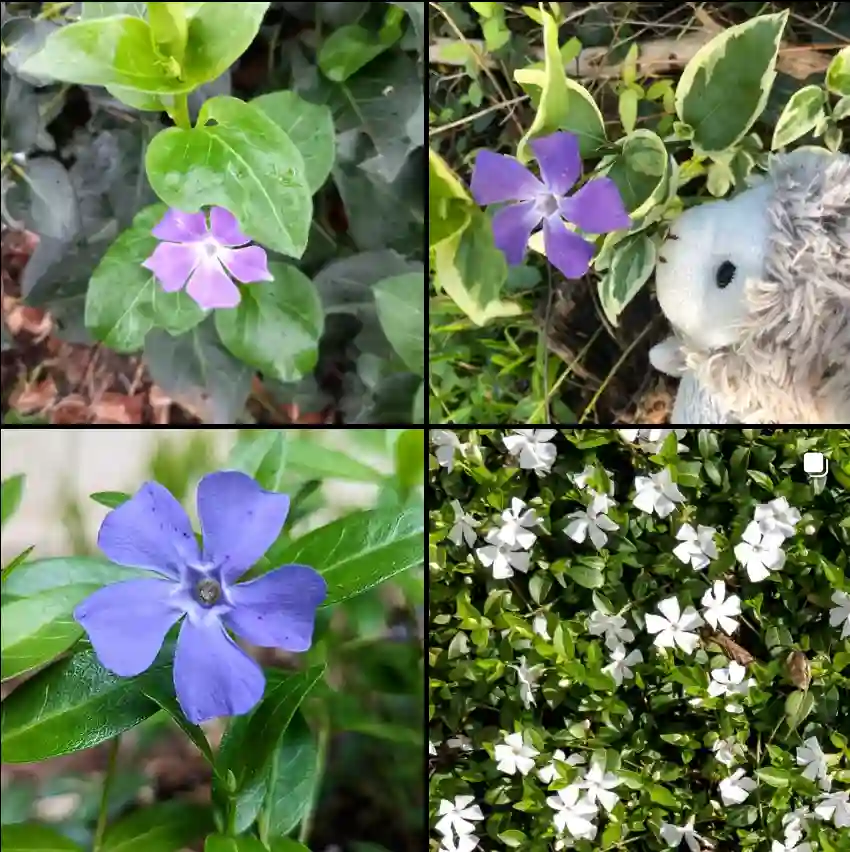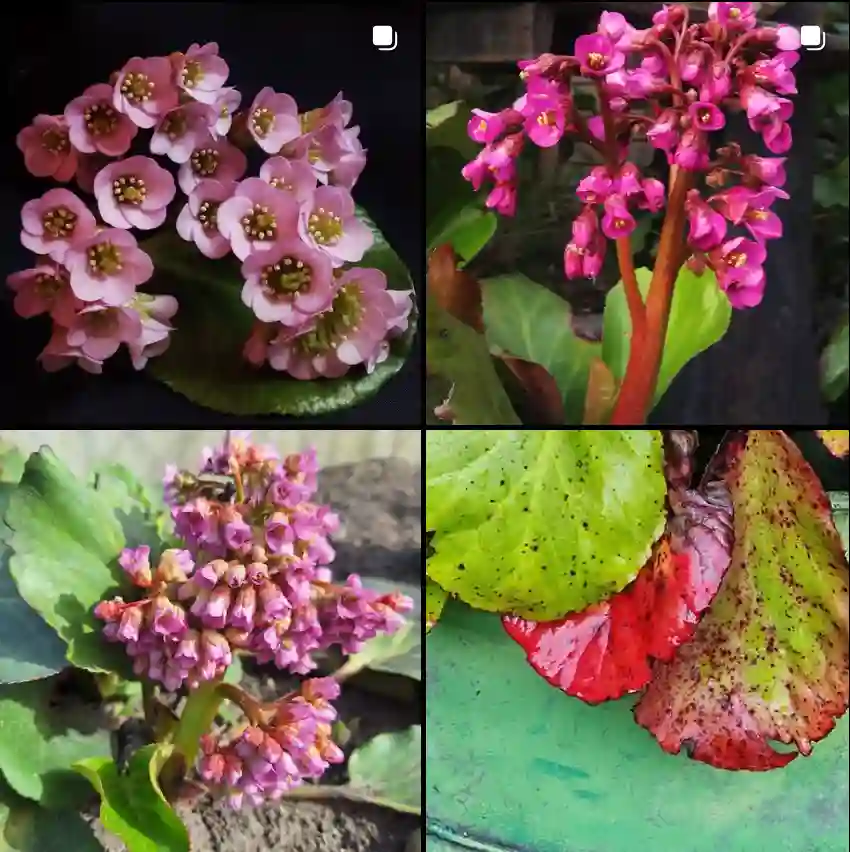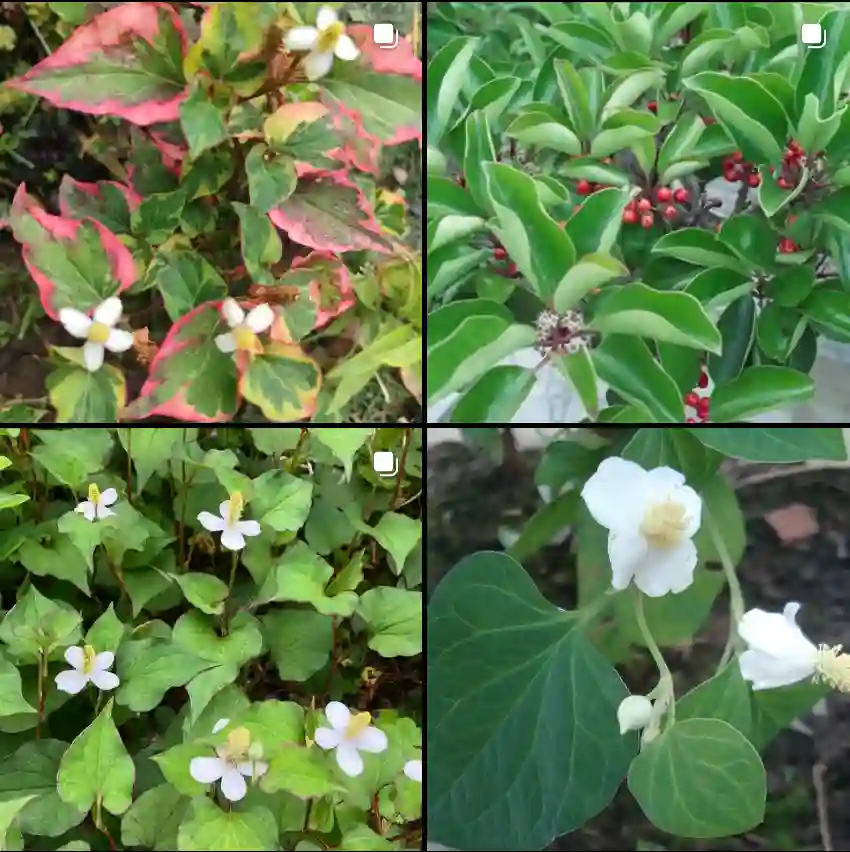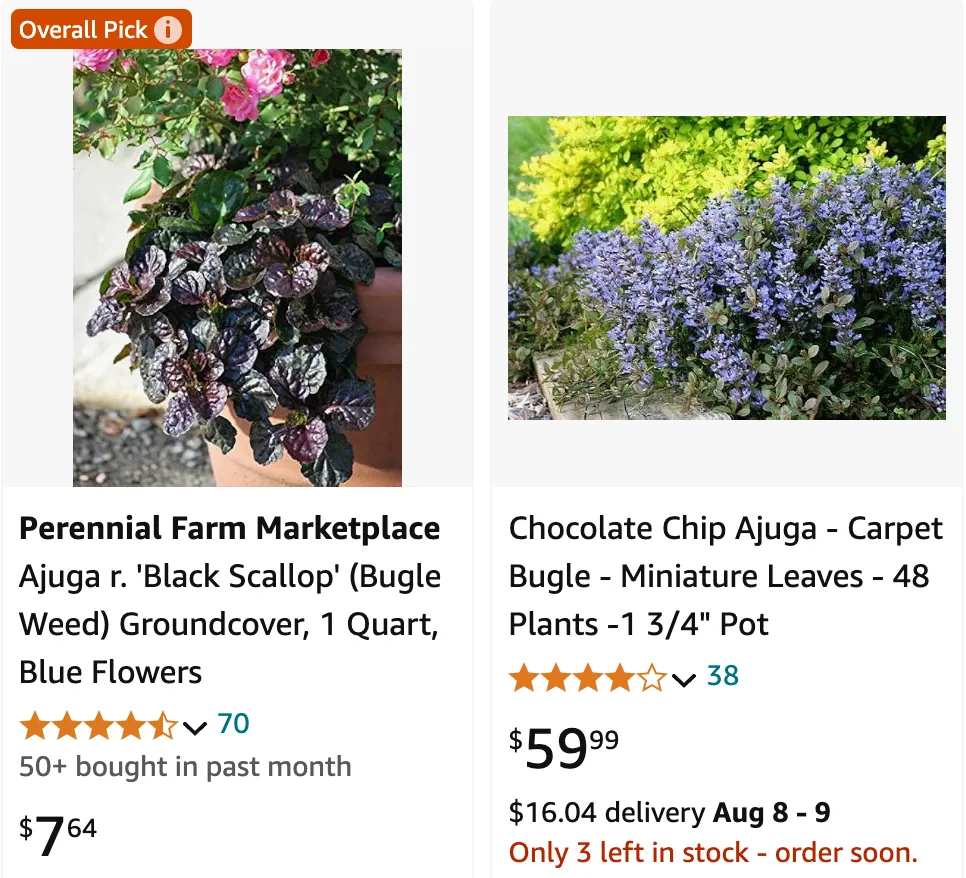
November 3 – Ajuga
"Ajuga, the bugleweed, defines November 3."
Ajuga symbolizes protection and resilience. You stand strong in the face of adversity, offering support to those in need. Like its sprawling growth, you are both nurturing and enduring.
FAQs About Ajuga
I’ve always found Ajuga, also known as Bugleweed, to be a fascinating and versatile plant. Here are some of the most frequently asked questions about Ajuga that I’ve come across.
What is Ajuga?
Ajuga is a genus of flowering plants in the mint family, Lamiaceae. Known for its low-growing, carpet-like foliage and striking blue flowers, Ajuga is often used as ground cover in gardens. It’s hardy, easy to grow, and provides year-round interest.
Ajuga species:
- Ajuga × adulterina Wallr.
- Ajuga arabica P.H.Davis
- Ajuga australis R.Br.
- Ajuga austroiranica Rech.f.
- Ajuga × bastarda Makino
- Ajuga bombycina Boiss.
- Ajuga boninsimae Maxim.
- Ajuga campylantha Diels
- Ajuga campylanthoides C.Y.Wu & C.Chen
- Ajuga chamaecistus Ging. ex Benth.
- Ajuga chamaepitys (L.) Schreb.
- Ajuga chasmophila P.H.Davis
- Ajuga ciliata Bunge
- Ajuga davisiana Kit Tan & Yıldız
- Ajuga decaryana Danguy ex R.A.Clement
- Ajuga decumbens Thunb.
- Ajuga dictyocarpa Hayata
- Ajuga flaccida Baker
- Ajuga forrestii Diels
- Ajuga genevensis L.
- Ajuga grandiflora Stapf
- Ajuga × hybrida A.Kern.
- Ajuga incisa Maxim.
- Ajuga integrifolia Buch.-Ham. ex D.Don
- Ajuga iva (L.) Schreb.
- Ajuga japonica Miq.
- Ajuga laxmannii (L.) Benth.
- Ajuga leucantha Lukhoba
- Ajuga linearifolia Pamp.
- Ajuga lobata D.Don
- Ajuga lupulina Maxim.
- Ajuga macrosperma Wall. ex Benth.
- Ajuga makinoi Nakai
- Ajuga × mixta Makino
- Ajuga mollis Gladkova
- Ajuga multiflora Bunge
- Ajuga nipponensis Makino
- Ajuga novoguineensis A.J.Paton & R.J.Johns
- Ajuga nubigena Diels
- Ajuga oblongata M.Bieb.
- Ajuga oocephala Baker
- Ajuga ophrydis Burch. ex Benth.
- Ajuga orientalis L.
- Ajuga ovalifolia Bureau & Franch.
- Ajuga pantantha Hand.-Mazz.
- Ajuga parviflora Benth.
- Ajuga piskoi Degen & Bald.
- Ajuga postii Briq.
- Ajuga × pseudopyramidalis Schur
- Ajuga pygmaea A.Gray
- Ajuga pyramidalis L.
- Ajuga relicta P.H.Davis
- Ajuga reptans L. Plant FAQs: Ajuga Reptans
- Ajuga robusta Baker
- Ajuga rubrobracteosa S.S.Ying
- Ajuga salicifolia (L.) Schreb.
- Ajuga saxicola Assadi & Jamzad
- Ajuga sciaphila W.W.Sm.
- Ajuga shikotanensis Miyabe & Tatew.
- Ajuga sinuata R.Br.
- Ajuga spectabilis Nakai
- Ajuga taiwanensis Nakai ex Murata
- Ajuga tenorei C.Presl
- Ajuga tsukubana (Nakai) Okuyama
- Ajuga turkestanica (Regel) Briq. Plant FAQs: Ajuga Turkestanica
- Ajuga vestita Boiss.
- Ajuga xylorrhiza Kit Tan
- Ajuga yesoensis Maxim. ex Franch. & Sav.
- Ajuga zakhoensis Rech.f.
Is Ajuga Invasive?
Yes, Ajuga can be invasive. It’s a vigorous spreader and can quickly take over garden spaces if not managed properly. I recommend planting it in areas where it can be easily contained or using barriers to prevent it from spreading too far.
Does Ajuga Die Back in the Winter?
Ajuga is semi-evergreen in many climates. In colder regions, it may die back and lose its foliage during winter, but it usually regrows in spring. In milder climates, Ajuga often retains its leaves throughout the year, providing continuous ground cover.
Will Ajuga Choke Out Other Plants?
Ajuga can be quite aggressive and may choke out other plants, especially smaller or less vigorous ones. It’s best to plant Ajuga in areas where it won’t interfere with other garden plants or in spots where its spreading nature can be beneficial.
Is Ajuga Deer Resistant?
Yes, Ajuga is generally deer resistant. Deer tend to avoid it due to its slightly bitter taste and tough foliage. This makes it a great choice for gardens in areas with high deer populations.
Is Ajuga Poisonous to Dogs?
Ajuga is considered non-toxic to dogs. However, as with any plant, it’s best to prevent pets from eating large quantities of it. Always check with your veterinarian if you have concerns about specific plants and your pets.
Where is Ajuga Native?
Ajuga is native to Europe, Asia, and Africa. It thrives in a variety of climates and has adapted well to many regions around the world, making it a popular choice for gardeners everywhere.
Is Ajuga Evergreen?
In many climates, Ajuga is evergreen or semi-evergreen. It retains its foliage throughout the year, providing continuous coverage and color in the garden. In colder climates, it may lose some leaves but generally bounces back in spring.
Do Rabbits Eat Ajuga?
Rabbits typically avoid Ajuga due to its slightly bitter taste and tough texture. However, in times of scarcity, rabbits might nibble on it. If rabbits are a problem in your area, Ajuga can be a good ground cover choice.
How to Plant Ajuga?
Planting Ajuga is straightforward. Choose a location with well-drained soil and partial to full shade. Dig holes large enough to accommodate the roots, space plants about 12 inches apart, and water them well after planting. Ajuga spreads quickly, so give it room to grow.
Is Ajuga Edible?
While Ajuga is not typically consumed by humans, it has been used in traditional medicine. However, it’s not considered an edible plant, and I wouldn’t recommend eating it.
Why is My Ajuga Dying?
Ajuga can suffer from crown rot, especially in poorly drained soils. Overwatering, high humidity, and lack of air circulation can exacerbate this issue. Ensure your Ajuga is planted in well-drained soil and avoid overwatering to keep it healthy.
Can Ajuga Grow in Full Shade?
Yes, Ajuga thrives in partial to full shade. It’s an excellent ground cover for shady areas where many other plants struggle to grow. However, it can also tolerate some sun, particularly in cooler climates.
Can Ajuga Grow in Full Sun?
Ajuga can grow in full sun, but it prefers partial shade. In hotter climates, full sun can cause the leaves to scorch and may require more frequent watering. If planting in full sun, ensure the soil remains consistently moist but not waterlogged.
How to Care for Ajuga?
Caring for Ajuga is relatively easy. Ensure it’s planted in well-drained soil and water it regularly during dry periods. Mulch around the plants to retain moisture and suppress weeds. Prune back any dead or damaged foliage to keep it looking tidy.
How to Propagate Ajuga?
Ajuga can be easily propagated by division. In spring or early fall, dig up the plant and carefully separate the runners or individual rosettes. Replant them in prepared soil and water thoroughly. Ajuga spreads quickly, so you’ll have new plants in no time.
What to Plant with Ajuga?
Ajuga pairs well with other shade-loving plants such as hostas, ferns, and heucheras. It provides excellent ground cover under taller plants and can be used to fill in gaps in shaded garden areas.
Ajuga is a versatile and attractive plant that can enhance any garden. Whether you’re looking for a hardy ground cover or an attractive border plant, Ajuga is a great choice.
If i die, water my plants!
